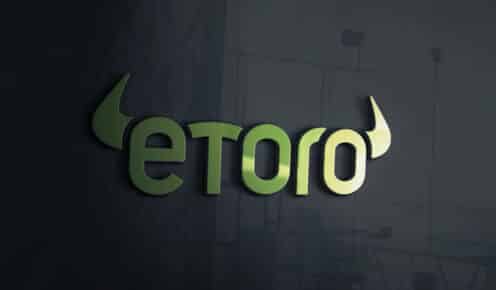Valuation is one of the most critical—and often misunderstood—aspects of building a startup. Whether you’re seeking angel investment, courting venture capitalists, or preparing for acquisition, understanding how investors determine your company’s worth can significantly shape your funding journey.
Let’s break down what valuation really means, why it matters, and how investors go about determining how much your business is worth.
What is Business Valuation?
Valuation refers to the process of determining the economic value of a company. For startups, especially in early stages, this isn’t about balance sheets or years of profitability—it’s about potential, projections, and perception. Investors use valuation to decide how much equity they’ll get in exchange for their capital.
For example, if an investor puts in $500,000 into a startup valued at $5 million post-money, they’ll own 10% of the company.
Why Valuation Matters
- Equity Negotiation: It defines how much of your company you’re giving away in exchange for investment.
- Investor Return Expectations: The valuation helps investors assess potential return on investment (ROI).
- Strategic Planning: It affects growth strategies, exit options, and follow-on funding rounds.
- Market Signaling: A high or low valuation can send strong signals to the market about confidence in your business.
Types of Startup Valuation
1. Pre-Money vs. Post-Money Valuation
- Pre-Money Valuation: The value of your company before investment.
- Post-Money Valuation: The value of your company after investment.
Formula:
Post-Money Valuation = Investment Amount + Pre-Money Valuation
2. Seed and Early-Stage Valuation
In the earliest stages, valuation is largely speculative. Investors rely on qualitative factors such as:
- Founder’s background
- Market potential
- Early traction or MVP
- Competitive advantage
Key Factors Investors Consider When Valuing Startups
1. Market Size and Opportunity
Investors assess how big the addressable market is. A billion-dollar market presents more growth potential than a niche $10 million one.
Key question: Can this company scale and capture a significant market share?
2. Traction and Milestones
Even early-stage investors look for signs of momentum. This can include:
- Monthly revenue growth
- User acquisition rates
- Product development milestones
- Partnerships or pilot customers
Traction serves as real-world validation of your idea.
3. Founding Team
A strong team often trumps a strong product. Investors consider:
- Domain expertise
- Execution ability
- Team dynamics
- Startup experience
Venture capitalists often say, “Bet on the jockey, not the horse.”
4. Competitive Landscape
Investors want to know how your product stands out:
- Do you have IP or proprietary tech?
- How strong are your competitors?
- What is your unique value proposition?
5. Revenue and Financial Metrics
For revenue-generating startups, key metrics include:
- Annual Recurring Revenue (ARR)
- Gross Margins
- Customer Acquisition Cost (CAC)
- Lifetime Value (LTV)
Strong financials support higher valuations.
6. Business Model and Scalability
Can the business scale without proportionally increasing costs?
SaaS, marketplace, and subscription models often attract higher valuations due to scalability and recurring revenue.
7. Risk Factors
The higher the risk, the lower the valuation. Risks may include:
- Regulatory challenges
- High burn rate
- Unproven market
- Dependence on a single client or technology
Investors will adjust the valuation accordingly.
Valuation Methods Investors Use
1. Comparable Company Analysis (Comps)
This method compares your startup to similar companies in your space—especially those that have recently raised funding.
Example: If a comparable startup raised $2M at a $10M valuation and you’re further along in traction, you might argue for a higher valuation.
2. Discounted Cash Flow (DCF)
Though more common for mature businesses, this model forecasts future cash flows and discounts them to present value. It’s less common for early-stage startups due to unpredictable revenues.
3. The Scorecard Method
Investors assign scores to various aspects of your business—team, product, market, etc.—and compare them to benchmarks. A composite score helps determine valuation.
4. Risk Factor Summation
This method starts with an average valuation for startups at your stage and adjusts it based on risk factors—adding or subtracting value depending on perceived strength or weakness.
5. Venture Capital Method
Investors estimate your future exit value (like IPO or acquisition), decide what return they want (e.g., 10x), and work backward to determine your current valuation.
Example:
If a VC expects a 10x return on $1M and anticipates a $100M exit, your current post-money valuation would be $10M.
How to Defend Your Valuation
- Bring Data: Use traction, customer feedback, or pipeline metrics to show progress.
- Know Your Industry: Understand benchmarks in your sector.
- Show Growth Plans: Demonstrate how you’ll scale post-investment.
- Back Your Numbers: Have detailed financial models and projections ready.
Common Mistakes Founders Make
- Overvaluing the Company: Unrealistic expectations can drive investors away.
- Ignoring Dilution: Raising at a high valuation early might hurt you in later rounds.
- Not Understanding the Terms: Valuation is only part of the equation—terms like liquidation preference and anti-dilution matter too.
How Valuation Evolves Over Time
Valuation isn’t static. It grows (or declines) based on:
- Business performance
- Market conditions
- Competitive landscape
- Funding environment
Each funding round adjusts the valuation based on new information and risk reduction.
Conclusion
Startup valuation is both art and science. While investors rely on numbers, the heart of valuation lies in your vision, your ability to execute, and the market opportunity. Understanding how investors assess worth allows you to negotiate better, build smarter, and grow confidently.
Whether you’re at the idea stage or preparing for Series A, remember: your valuation is more than a number—it’s a reflection of your business’s potential and credibility in the eyes of those betting on your success.












